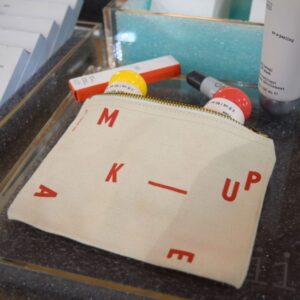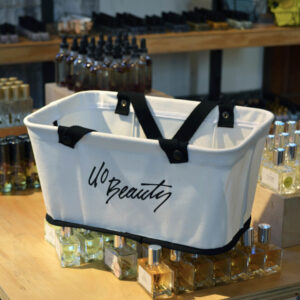





Cotton is one of the most common materials when it comes to reusable packaging and comes in many different forms. Sustainable materials like cotton and organic cotton are the perfect versatile material for all seasons. All types of cotton come in different gauges and weaves. Use this material year-round as a fashion piece or as packaging. Most importantly, cotton bags and apparel come in a variety of premium trendy styles and weights.
Sustainable materials like cotton and organic cotton can be distressed or washed prior to construction. Above all, this process softens the fabric to achieve a certain look. Add embellishments to make any piece of your cotton packaging unique. One of cotton’s greatest advantages is that it is a renewable material. This material can also come from organic sources. Even though both materials are sustainable and reusable, there is a slight difference between the two.
Organic Cotton and Cotton
On the other hand, to consider cotton organic, it must be grown using certain methods and materials that have a low impact on the environment. Irrigation systems producing organic cotton replenish and maintain soil fertility; along with expanding biologically diverse agriculture. To grow organic cotton, agricultural groups prohibit the use of pesticides. Farmers must also verify that they meet strict and federal regulations allowed in organic cotton production.
When it comes to producing regular cotton, the processing stage is relatively the same. Even though growing cotton uses pesticides to protect the plant against harm, cotton farmers do not heavily rely on pesticide use. Over the years, cotton farmers drastically reduce their pesticide usage. Regardless, if cotton is organic or not, it is a great biodegradable and sustainable fabric. Brands use cotton for everything from clothing to shopping and tote bags.
Certified in Organic Cotton
Companies and manufacturers show a great interest in where their products and materials come from and their impact on the environment. Manufacturers can obtain many certifications for organic cotton to ensure their packaging and products come from responsible sources.
- GOTS: Global Organic Textile Standard (GOTS) is to define requirements to ensure organic status of textiles. From the harvesting of the raw materials, through environmentally and socially responsible manufacturing up to labeling. This process provides a credible assurance to the end consumer. Consumers recognize GOTS as the world’s leading processing standard for textiles made from organic fibers. It defines high-level environmental criteria along the entire organic textiles supply chain. This standard requires compliance with social criteria as well. However, only textile products that contain a minimum of 70% organic fibers can become GOTS certified. All chemical inputs such as dyestuffs and auxiliaries used must meet certain environmental and toxicological criteria. The choice of accessories is limited in accordance with ecological aspects as well. A functional waste water treatment plant is mandatory for any wet-processing unit involving all processors. They must comply with minimum social criteria.
- BSCI: The Amfori Business Social Compliance Initiative (BSCI) is an industry-driven movement that aims to monitor and assess workplace standards across the global supply chain. An Amfori BSCI audit helps a business monitor its supply chain to ensure that all suppliers are treating workers ethically and legally.
Cotton in Packaging
Overall, much of the cotton demand currently comes from manufacturers and brands that seek corporate environmental sustainability goals. We mostly see this when it comes to sustainable packaging. Many brands are creating their reusable shopping bags out of cotton or organic cotton.
First, you can create your sustainable tote bags and pouches from these versatile materials: cotton or organic cotton. When customizing your cotton packaging pieces, some constructions to think about are: tote bags, drawstring pouches, zip pouches and cotton even mesh totes.
Next, to put the finishing touches on your cotton packaging pieces, add some custom treatments. Foil hot stamping, and custom printing logos and graphics are a few popular treatments. Along with our most popular treatments, we can match any Pantone color for a piece that completely fits your brand.
Finally, cotton has become so popular that majority of the demand comes from retailers and customers alike. To be as eco-friendly as possible, they are seeking sustainable, chemical-free packaging and products. That can easily be found with cotton and organic cotton.



